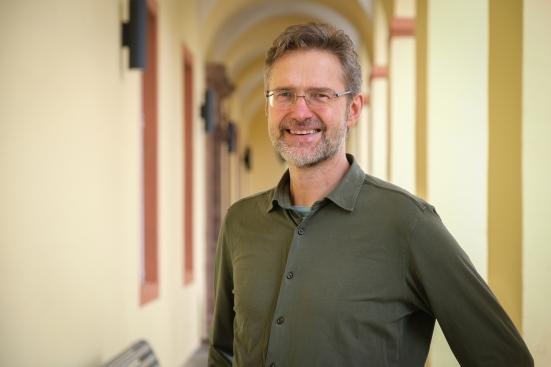Reforms not at the expense of patients
"Attempts to control patients via additional fees have never worked."
How can the statutory health insurance funds (SHI) be relieved in the face of looming billions in shortfalls? A commission of experts convened by Federal Minister of Health Nina Warken is to make concrete reform proposals and look at the structures of the German healthcare system. The commission began its work this week. In this context, Siegen health scientist Claus Wendt warns against further economization of the system: "Reforms should not be at the expense of patients," emphasizes Wendt, who holds the Chair of Sociology of Health and the Healthcare System at the University of Siegen.
"People with high incomes are not deterred from visiting the doctor by additional fees. Poor people, on the other hand, also forgo necessary appointments. This can mean that they are treated too late and the costs end up being even higher," explains Wendt. Wendt thinks little of a contact fee for visits to the doctor or patient bills in order to reduce the high number of visits to the doctor and relieve the burden on health insurance companies. "Such attempts to control patients via additional fees have never worked," says Wendt, recalling the practice fee that failed twelve years ago.
Instead, the health scientist advocates the nationwide introduction of a general practitioner principle: Patients would register on the list of a GP practice, which would then coordinate all healthcare services. Visits to specialists would only be possible with a referral from the GP. Of course, this would increase the workload for GPs, Wendt admits - but there are also solutions for this: "The trend is moving towards large primary care centers - I think that's the right way to go. Countries such as Sweden and the Netherlands have already completely abandoned individual practices in outpatient care. This relieves the burden on doctors: for example, they no longer have to deal with bureaucratic tasks themselves, but can hand them over to a joint administration."
At the same time, Wendt is calling for the academization of nursing professions in order to further relieve the burden on doctors. Better qualified nursing staff could take on certain tasks that only doctors are currently allowed to perform in Germany. This would also be more cost-effective, emphasizes Wendt: "Of course, these services would then also have to be billed differently. Other countries, particularly in Scandinavia and the Netherlands, are also showing us that this works."
According to Wendt, structural reforms are also necessary for hospital treatments - they cause the greatest costs in the German healthcare system. The length of stay in hospital urgently needs to be reduced, says Wendt: "Here, patients sometimes stay in hospital twice as long as in other countries. The better way would be to discharge them earlier and have them cared for at home by mobile nursing teams." This would not only be cheaper than paying for a hospital bed - it would also lead to a faster recovery: "People feel more comfortable in their familiar surroundings and move around a lot more than in hospital, where even meals are taken lying down."


